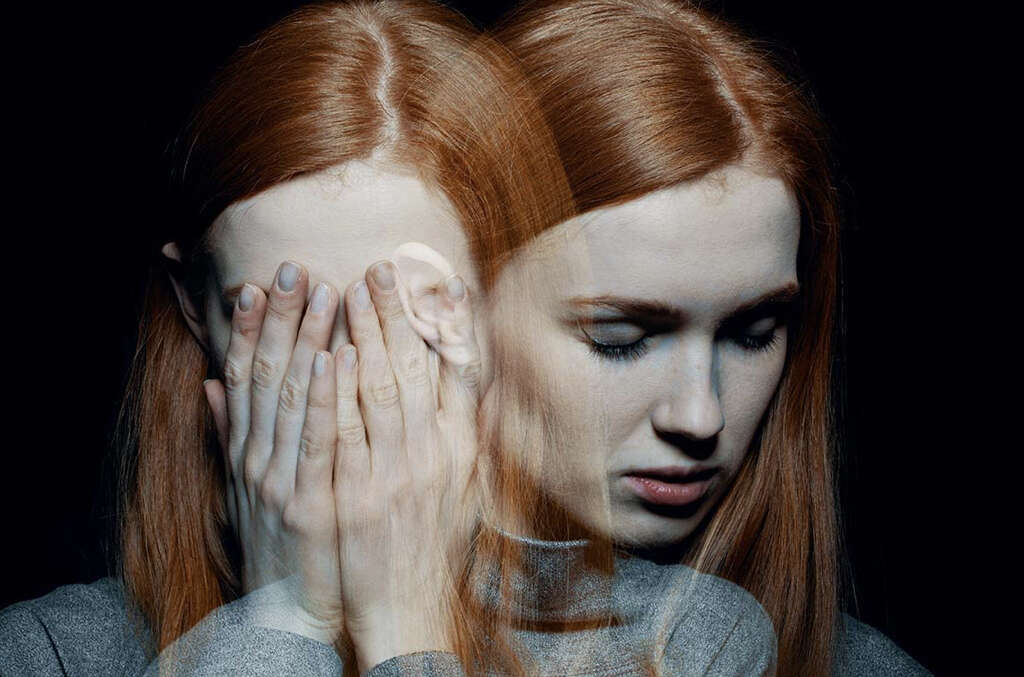What Is Delusional Disorder?
We can all daydream now and then, imagining ourselves in positions and environments different to those we occupy in reality. This is not usually a problem and the vast majority of us are able to make the distinction between fiction and reality. Not everybody is so fortunate, however.
Some people will experience delusions, which are when the patient will believe things that are just not real. They might believe that people are out to harm them, or maybe that they are more important than they really are. They are numerous medical conditions that can cause this, and one of the is delusional disorder.

1. Delusional Disorder
As the name suggests, delusional disorder is a mental condition in which the patient experiences delusions. It was previously known as paranoid disorder. The condition will be severe enough to the point where the patient is unable to differentiate between their own imagination, and reality.
People with the condition can often live otherwise normal lives. Although their delusions may be very real to them, they will often involve things that won’t necessarily have an impact on their life overall. In some cases, however, the delusions can take over every aspect of the patient’s life. Delusion will also sometimes occur as a symptom of some other medical conditions.

2. Causes
Mental health conditions are very complex and it can be very difficult to tell just what the cause is. However, there are some factors that appear to have a link to delusional disorder. One of these is genetic, and delusional disorder is more common in people that have a history of mental disorders in their family.
Some environmental factors are also associated with delusional disorder, and those with the condition will often have undergone prolonged periods of stress. People with sight and/or hearing problems are also more prone, as are people that live solitary lives. Alcohol and drug abuse are another potential factor, as is brain chemistry.

3. Jealous Type
There are different types of delusional disorder, one of which is the jealous type. Jealousy is not uncommon; it is quite natural to feel jealous in some situations. Some people are more likely to become jealous than others, however. Some can become jealous even over the slightest of things.
Jealous type delusions order can cause the patient to become jealous over situations that do not exist in reality. For example, the patient might be convinced that their partner is being unfaithful to them when it is just not the case. It has the potential to tear apart even the strongest of relationships.

4. Erotomanic Type
It is often a good feeling to learn that somebody else has affectionate feelings towards you, and we might sometimes even daydream that that is the case. However, most of us will be well aware of the reality and not believe it to actually be true. The same can’t always be said for people with erotomanic type delusion order, however.
The disorder can cause people to genuinely believe that other people are in love with them, even in the absence of any evidence supporting the belief. This will often involve celebrities and other famous people. In some cases, the patient will stalk the other person, and will sometimes try to contact them directly.

5. Persecutory
It is unfortunately true that there are some unpleasant people in the world that are willing to do others harm. It is not often that we will encounter such people, however, and the vast majority of other people have no interested in harming other people. Still, some might feel as though other people are out to harm them, even it is not true.
Patients with persecutory delusional disorder will often feel as though other people are conspiring to cause them harm. They can be convinced that they are being spied on, or being followed by nefarious characters. People with the condition will often make complaints to the authorities regarding perceived threats.

6. Grandiose
It is OK for us to have some self-respect. Most of us have had to work very hard for what we have achieved, and there is nothing wrong with us acknowledging that. It is fine to recognize our achievements, and also fine to give ourselves a pat on the back occasionally. It is also important to remain reasonably modest, however.
Grandiose delusional disorder is a condition that causes the patient to develop an over-inflated ego. They can feel that they are especially valuable people; considerably more so than other people around them. The patient might feel as though they have made achievements that are far greater than the reality.

7. Somatic
We will all fall ill at some point, but some people have more problems with their health than others. It is not nice falling ill and, in many cases, the patient will have a genuine reason to be concerned. Some people might develop serious concerns when there is nothing to be concerned about, however.
Somatic delusional disorder causes the patient to become convinced that there is something wrong with them, even when there is not. They can make regular appointments with doctors, and not believe the doctor when told that they are in good health. It will lead to the patient acquiring crippling medical debts in some cases.

8. Symptoms
The main symptom of delusional disorder is delusions. Other symptoms that are associated with the condition are a poor mood, anger, and irritability. People with the condition will also sometimes experience hallucinations that are related to their delusions. The hallucinations that the patient can experience can be just as real to the patient as reality.
The hallucinations can be visual, meaning the patient will see things that are simply not there. What’s more is that the patient can also experience auditory hallucinations, and they may also detect smells that don’t exist. Having realistic hallucinations will often only reinforce the patient’s belief in their delusions.

9. Diagnosis
Your doctor will likely want to perform a physical examination and ask about your symptoms. Tests may also be performed to check to see if you have any underlying medical conditions that are behind your symptoms. For example, it will be necessary to check that somebody with somatic delusion disorder is not genuinely ill.
If a mental heal condition is suspected then you will be referred to a mental health specialist. The specialist will need to interview you and ask you about your symptoms and how you feel about them. If the patient is showing symptoms that are typical of the condition, then they will be diagnosed with suffering from delusional disorder.

10. Treatment
Treatment for delusional disorder will typically involve medication. This will usually involve antipsychotics that will help to block dopamine receptors that are located in the brain. Dopamine is a type of hormone that is thought to be behind the development of delusions in many cases.
In addition to medication, the patient will also likely undergo therapy sessions. Therapy sessions can be very effective in helping the patient to live with their condition. The patient can learn to identify the warning signs of relapses, and to take action to prevent relapses from happening. Therapy can also help the patient to manage their symptoms better.












